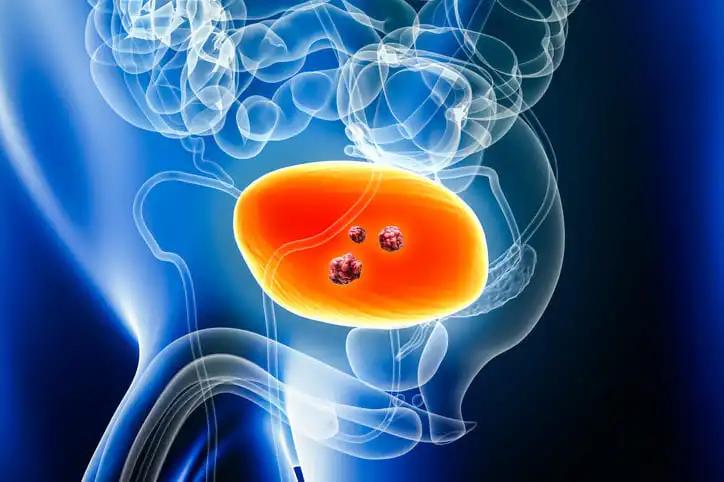KEY TAKEAWAYS
- The study explored how ferroptosis regulators in the TME affect BCa progression and immunotherapy.
- The study identified ACSL4+CAFs as a potential therapeutic target and SDC1 as a valuable biomarker for BCa.
Ferroptosis, a form of programmed cell death, is pivotal in the onset and progression of bladder cancer (BCa). Despite its importance, the mechanisms regulating ferroptosis in the tumor microenvironment (TME) of BCa remain unclear.
Ziang Chen and the team aimed to evaluate the role of ferroptosis regulators in the TME and their effects on BCa progression and immunotherapy outcomes.
Researchers performed an inclusive analysis of single-cell RNA (scRNA) transcriptomic data from patients with BCa, utilizing non-negative matrix factorization (NMF) for dimensionality reduction and clustering to uncover novel ferroptosis-related cell subtypes within the BCa TME. This approach aimed to elucidate the biological characteristics of these TME cell subtypes.
The survival analysis and univariate Cox regression were then conducted to assess the prognostic significance of these subtypes. The study also explored the relationship between specific subtypes and immune infiltration, evaluating their implications for immunotherapy. A valuable and novel biomarker for BCa was identified, further supported by a series of in vitro experiments.
About the cancer-associated fibroblasts (CAFs), macrophages, and T cells, researchers subdivided these into 3-5 small subpopulations using NMF and explored their biological features. It was found that ferroptosis plays a significant role in the BCa TME. Bulk RNA-seq analysis further verified that ferroptosis influences BCa progression, prognosis, and immunotherapy response by regulating the TME.
Notably, ACSL4+CAFs were identified as a subtype with high-level infiltration, which predicted poorer prognosis, more complex immune infiltration, and reduced response to immunotherapy. Additionally, this CAF subtype was linked to cancer cells through the PTN-SDC1 axis, suggesting that SDC1 may be crucial in regulating CAFs in cancer cells.
In vitro experiments supported these findings, showing that SDC1 promotes BCa progression. Furthermore, FTH1+ macrophages were discovered to be closely related to SPP1+ macrophages and may also be involved in regulating the BCa TME.
The study highlighted the significant impact of ferroptosis on the BCa TME. The identification of novel ferroptosis-related TME cell subpopulations, particularly ACSL4+CAFs, provides potential therapeutic targets for BCa. Furthermore, the study identifies SDC1 as a promising prognostic biomarker for BCa.
This study was funded by the National Natural Science Foundation of China (No.81802569, 82373222, 82202255), the Leading Talent Program by Shanghai Municipal Health Commission (2022LJ008), Medical Innovation Research Special Project by Science and Technology Commission of Shanghai Municipality (22Y21900200), Clinical Scientific and Technological Innovation Project by Shanghai Hospital Development Center (SHDC12021104).
Source: https://pubmed.ncbi.nlm.nih.gov/39238647/
Chen Z, Hu J, Ou Y, et al. (2024). “Integrating single-cell transcriptomics to reveal the ferroptosis regulators in the tumor microenvironment that contribute to bladder urothelial carcinoma progression and immunotherapy.” Front Immunol. 2024;15:1427124. Published 2024 Aug 22. doi:10.3389/fimmu.2024.1427124



